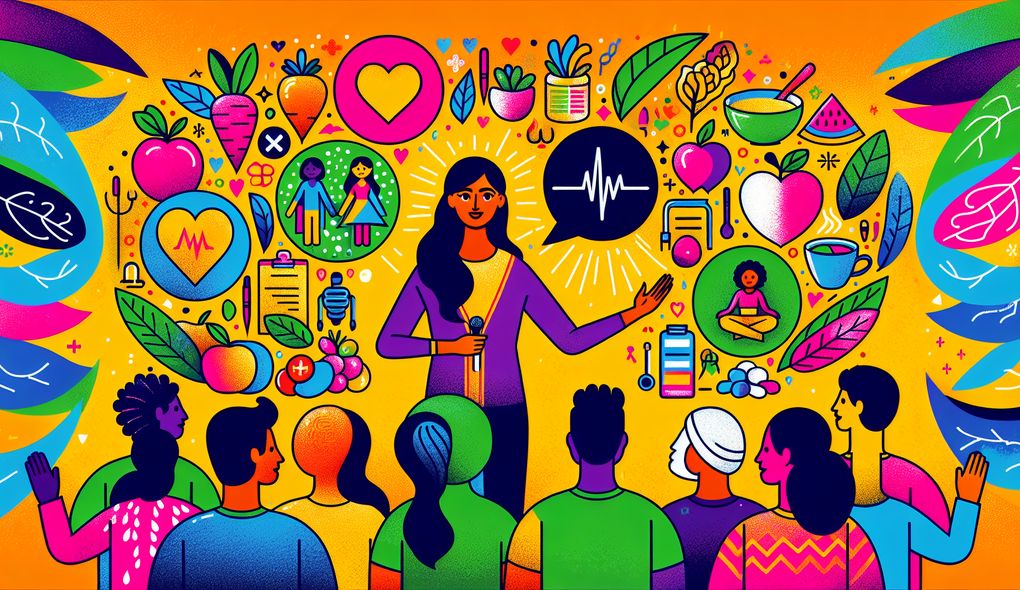How do you handle challenges and obstacles when implementing health education programs?
JUNIOR LEVEL

Sample answer to the question:
When faced with challenges and obstacles in implementing health education programs, I approach them with a proactive mindset. First, I thoroughly assess the situation to understand the nature of the challenge. Then, I brainstorm potential solutions and weigh their feasibility and effectiveness. I believe in collaboration and actively seek input from colleagues and stakeholders to gather different perspectives and ideas. Once a solution is determined, I develop a detailed plan and timelines for implementation. Throughout the process, I maintain open communication with all parties involved and provide regular updates on progress. I also stay flexible and adapt my approach if needed. Lastly, I monitor the outcomes of the program, gather feedback, and make necessary adjustments for continuous improvement.
Here is a more solid answer:
When faced with challenges and obstacles in implementing health education programs, my approach is to first thoroughly assess the situation and identify the specific challenge at hand. I then research and gather relevant information to gain a deeper understanding of the issue. Next, I brainstorm potential solutions and evaluate them based on feasibility and effectiveness. Collaboration is key in my approach, so I actively seek input from colleagues, stakeholders, and community members to gather diverse perspectives and ideas. This not only helps to identify innovative solutions but also ensures the program meets the specific needs of the target audience. Once a solution is determined, I develop a detailed plan with clear objectives, strategies, and timelines for implementation. Effective communication is crucial throughout the process, so I maintain open and transparent communication with all parties involved, providing regular updates and seeking feedback. I also emphasize the importance of adaptability, as challenges may require adjusting the approach or implementing contingency plans. Monitoring and evaluation are integral to the success of any health program, so I closely monitor the outcomes, collect data, and seek feedback from participants and stakeholders. This information allows me to make necessary adjustments and improvements for future program iterations.
Why is this a more solid answer?
The solid answer expands on the basic answer by emphasizing the need for thorough research and gathering relevant information, actively seeking input from diverse sources, developing a detailed plan, and placing importance on monitoring and evaluation.
An example of a exceptional answer:
When facing challenges and obstacles in implementing health education programs, I approach them with a comprehensive problem-solving framework. Firstly, I start by thoroughly assessing the situation and analyzing the root causes of the challenge. This involves conducting a needs assessment, gathering data, and consulting relevant literature and experts in the field. Based on this analysis, I develop a holistic and evidence-based approach to address the challenge. I collaborate with a multidisciplinary team, including healthcare providers, community leaders, and stakeholders, to ensure a diverse range of perspectives and expertise. Throughout the implementation process, I prioritize effective communication, providing clear instructions and guidance to team members while actively engaging with the target audience and community. I remain adaptable and flexible, ready to adjust plans and strategies based on feedback and emerging circumstances. Additionally, I ensure that the program aligns with the latest research, health trends, and educational strategies by regularly updating my knowledge through professional development opportunities. Lastly, I believe that continuous monitoring, evaluation, and improvement are essential components of every health education program. I establish comprehensive evaluation frameworks, incorporating quantitative and qualitative measures to assess program effectiveness and impact. The feedback received is used to inform program updates and modifications for future iterations, ensuring continuous growth and improvement.
Why is this an exceptional answer?
The exceptional answer demonstrates a comprehensive problem-solving framework that includes conducting a needs assessment, consulting experts and literature, collaborating with a multidisciplinary team, prioritizing effective communication, remaining adaptable, and continuously monitoring and evaluating the program's impact.
How to prepare for this question:
- Research and stay up to date with current health issues and education strategies.
- Develop strong problem-solving and critical thinking skills.
- Enhance communication and collaboration skills through active participation in group projects and team-based activities.
- Learn to adapt and be flexible in different situations.
- Develop strong planning and organizational skills by effectively managing projects or programs.
What are interviewers evaluating with this question?
- Problem-solving skills
- Collaboration
- Communication skills
- Adaptability
- Planning and organization

